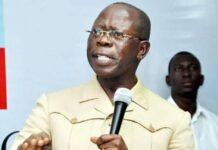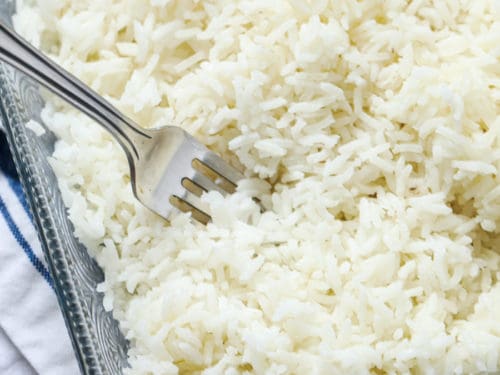According to data obtained from the National Bureau of Statistics, the average price of bread and rice in Nigeria has increased significantly over the last five years.
Based on NBS data, a year-over-year comparison of average prices from January 2017 to January 2022 shows that bread (unsliced, 500g) and rice (agric-sold loose rice) both saw price increases of 42% and 48%, respectively.
The average price of a loaf of bread (unsliced, 500g) in January 2017 was N270. However, by January 2022, it had risen to N384.
The price of sliced bread (500g) has also increased, from N303 in January 2017 to N419 in January 2022.
As of January 2017, the average cost of 1kg of rice (agric-sold loose rice) was N324. However, by January 2022, it had risen to N481.
Read also: I Didn’t Clear Abba Kyari On Money Laundering….
Locally sold loose rice, medium-grained rice, and imported high quality sold loose rice (1kg each) all increased in price from N286, N312, and N402 in January 2017 to N430, N477, and N579 in January 2022, respectively.
Despite the fact that overall inflation fell from 18.72 percent in January 2017 to 15.60 percent in January 2022, this was the case.
However, the 15.60 percent was still higher than the Federal Government’s inflation target of 13% for 2022.
In its key projections and assumptions for the 2022 budget, the federal government forecasted an inflation rate of 13%.
Mrs Zainab Ahmed, the Minister of Finance, Budget, and National Planning, revealed this during her recent presentation of the approved budget for this year.
“Inflation is expected to be double-digit in the medium term due to structural issues affecting the cost of doing business, including high food distribution costs,” she had said. However, the current steady decline is expected to continue, with inflation expected to fall to 13% in 2022 and 10% by 2024.”
The country, however, continues to struggle with double-digit inflation, with the World Bank predicting that Nigeria will have one of the highest inflation rates in the world in 2022, with rising prices eroding Nigerian households’ well-being.
Nigeria may have the seventh-highest inflation rate among Sub-Saharan African countries in 2022, according to the Washington-based bank’s Nigeria Development Update report.
With the full implementation of the CBN’s recent policies designed to boost various sectors of the economy, the country’s inflation rate is expected to drop to a single digit in 2022.
The World Bank, on the other hand, stated that the Federal Government of Nigeria did not take any concerted action to reduce inflation in 2021, despite the fact that inflation had pushed an estimated eight million Nigerians into poverty.
“Double-digit inflation rates are depressing economic activity and exacerbating poverty,” the report stated. Rising food prices are eroding household purchasing power, and we estimate that the ‘inflation shock’ alone will push about eight million Nigerians into poverty between 2020 and 2021.”
Read also: BREAKING: Niger State Youths On The Rampage To avenge The killing Of Two Farmers By Suspected Fulani Herder.
“Without decisive action, the average inflation rate for 2021 will exceed that of 2020, and by the end of 2022, it will be unlikely to approach the CBN’s target range of 6–9%,” it continued.
“The inflation rate has not fallen below 9% since 2014, but in a hypothetical scenario in which inflation had been close to the CBN’s goal of 9% in 2020 and 2021, the average Nigerian’s consumption level would have been at least 15% higher today.”
Aside from the World Bank, Global Finance, a US-based publication, said the CBN failed to control rising inflation and prevent the naira from depreciating against the US dollar.
Join Television Nigerian Whatsapp Now
Join Television Nigerian Facebook Now
Join Television Nigerian Twitter Now
Join Television Nigerian YouTUbe Now

















